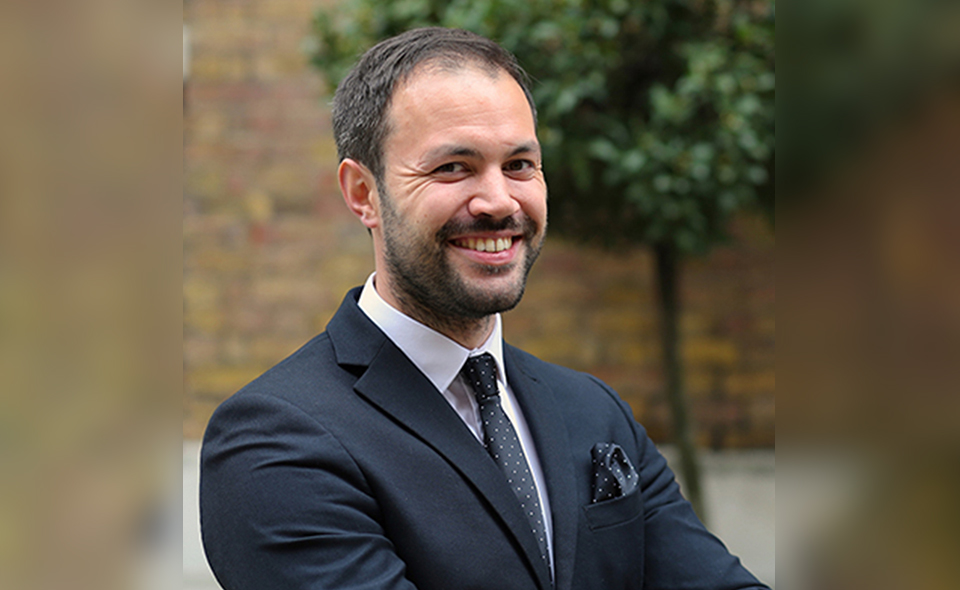Reputation and communications specialist Tal Donahue discusses what this means for law firms’ PR strategies and how they can position themselves firmly on the drive for a greener future.
For most law firms, if not all, having a position on climate change is now a hygiene factor. Across all sectors, the adaptation of businesses and business models to thrive in the ‘net zero’ economy (and survive the transition to it) is a critical commercial imperative. It is also, particularly in the transitional period that we are now in, a communications imperative. Reputation risk looms large.
But, on the face of it, the legal sector may seem like it has comparatively little to fear from a reputational point of view on this issue.
The ‘Scope’ of the Challenge
In and of themselves, law firms’ activities are not a major direct cause of rising temperatures or extreme weather events. Even those who still rely on significant amounts of air travel for business produce emissions which are a very small drop in a very large ocean.
Addressing this, for most, is the easy bit (although there is always more that can be done) – and, increasingly, table stakes; to comply with regulations or meet the requirements of ever more sustainability-focused tenders.
Of course, this all requires effective and considered communications to ensure that what firms are doing is transparent and accessible – for both internal and external stakeholders.
This is not just an issue for the larger firms. Qualifying (large) firms face strict compulsory reporting requirements, (including compliance with ‘The Companies (Strategic Report) (Climate-related Financial Disclosure) Regulations 2022’ and ‘The Limited Liability Partnerships (Climate-related Financial Disclosure) Regulations 2022’, incorporating alignment with the international gold standard on climate disclosures from the TCFD). But they also are more likely to have the scale and infrastructure to effectively operationalise the process of capturing data and reporting effectively.
Smaller firms going to bat against their larger counterparts in the market are essentially compelled to self-regulate as a result. To not do so would leave their brands at a significant competitive disadvantage. This creates challenges both in terms of adequately resourcing ‘sustainability’ as an issue and communicating it.
Beyond this, though, the real reputation challenge is increasingly likely to be the extent to which law firms – of all types and sizes – are, or are perceived to be, facilitating pollution through the services they provide to their clients.
For most law firms, if not all, having a position on climate change is now a hygiene factor.
Advised Emissions
Law Students for Climate Accountability has turned the spotlight on this uncomfortable dilemma. US-based LSCA published its first UK report earlier this month, with contributions from legal students at universities including Bath and Bristol. Among the findings were that London firms facilitated £1.48 trillion in fossil fuel projects between 2018 and 2022.
Firms named by the report’s authors include many who, ostensibly, have been in the vanguard of those making significant operational changes and committing to robust targets with respect to net zero – including some of the first to have their carbon reduction targets validated by the SBTi.
Here, then, is the key dilemma.
Most firms will have limited Scope 1 and 2 emissions in practice, particularly as more people work from home and business travel becomes less frequent. Even Scope 3 emissions are likely to be marginal.
Getting to grips with, and being transparent on, these areas is now ‘table stakes’. The proof in the sustainability pudding, for many stakeholders, will therefore increasingly be Scope 4 or ‘advised emissions’.
That is, just what kinds of activities are facilitated by a firm’s services and how far are they compatible with the global mission to achieve the Paris Agreement and not breach 1.5 degrees of global warming? The fact that this mission is on a knife edge was hammered home by the World Meteorological Organization just a few days after LSCA published its report, alarmingly forecasting that the 1.5 degree threshold would most likely be breached within the next five years.
Getting to grips with, and being transparent on, these areas is now ‘table stakes’.
Climate as a Commercial Imperative
This is not an ‘abstract’ for future-oriented issue. It is having commercial impact today. As evidenced by the forthright work undertaken by LSCA, today’s generation of legal talent will vote with their feet and choose to work with firms who are seen to be taking climate change seriously.
Likewise, sophisticated buyers of services, including legal services, want to know how far a potential partner aligns with their values and mission and, tangibly, how far they will help or hinder their own net zero journey.
I was fortunate enough to attend the Economist’s recent conference on sustainability and one anecdotal point that stuck with me was that procurement of goods and services has historically been driven by two factors: price and capability. Now, it is price, capability and contribution to sustainability goals – in equal measure.
The ability to effectively communicate answers to these questions is now fundamental for firms. The Law Society’s recent guidance on climate change addresses this issue head on – highlighting the factors that such communications must consider, not least the UK’s Green Claims Code.
The guidance, more generally, has stirred significant debate, but its advice in relation to advised or ‘Scope 4’ emissions is helpful – and it rightly notes the ‘increased attention’ such emissions are receiving.
This is not an ‘abstract’ for future-oriented issue. It is having commercial impact today.
This is exactly the point evidenced by the LCSA. It is easy to tar a firm with the brush of hypocrisy (or, dare we say it, greenwashing) if they have claimed that transforming their business to be ‘carbon neutral’ is a strategic priority aligned with values, yet their client work includes serving the interests of, say, the continuation of fossil fuel production.
The reality, of course, is more nuanced. But those are the optics that firms are dealing with.
And optics are important. Law firms’ reputations are essential to their commercial success – from impacting their ability to attract talent, to sustaining fruitful relationships with referrers. Communications are, of course, essentially the art of building and maintaining reputation and getting it right on climate change is vital.
The Law Driving Positive Change
But the challenge is that simply ‘refusing to work’ for, say, fossil fuel companies or in other ‘hard to abate’ industries risks over-simplifying the climate problem – to take nothing away from the laudable philosophical position of the Lawyers are Responsible movement.
The reality is, as the UK government has pointed out, legacy industry operators, such as oil and gas businesses, have a vital role to play in the energy transition – even if some find that an unpalatable truth. Those with foresight will provide, and are providing, the necessary infrastructure, know-how, capacity and investment which will create a new, clean energy economy. They also ensure that the ‘lights stay on’ during the transition.
To cast them on to the scrapheap is unproductive – they must be constructively treated as part of the solution.
They are also, clearly, entitled to legal representation – with due legal process a critical component to ensuring that those who fall short of their net zero responsibilities are held accountable. The recent research by LSE into the rising tide of climate litigation and its effect on company share price is noteworthy in that regard.
[ymal]
This is an important point. The law itself has a vital role to play in influencing and informing the shifts in the status quo that are required to deliver outcomes which support the transition to net zero, while providing the safeguards that ensure the transition is ‘just’.
The Chancery Lane Project, for example, has taken forward the mission of making ‘climate clauses’ for contracts freely accessible – with the aim of making climate considerations ubiquitous in commercial agreements.
We should not be lulled into thinking that commercial firms have been dragging their feet. The legal industry has been taking real steps forward, spurred by voluntary organisations and pacts, not least the Legal Sustainability Alliance, Lawyers for Net Zero and, most recently, the Legal Charter for 1.5 Degrees. These all have a role to play in sharing best practice and raising awareness of the role of the law, lawyers and law firms in the net zero mission
But firms cannot rest on their laurels. Scrutiny on the industry as a whole is intensifying, expectations are increasing, and climate is now a critical battleground in the war for talent, and for work. Firms must be prepared to reflect and respond on these issues. Their reputations are at stake.
Tal Donahue, Senior Associate Director
Infinite Global Consulting Ltd
20 Old Bailey, 5th Floor, London EC4M 7AN, UK
Tel: +44 02072 691438
Tal Donahue is a reputation and communications adviser to professional services, property and B2B brands. He helps complex businesses and expert individuals become thought leaders and works to defend their reputation and brand value in special situations. His clients include UK top 20 accounting and top 100 law firms as well as global technology enterprises.
Infinite Global is an international communications firm specialising in PR, messaging, reputation management and content for B2B businesses and professional services firms. Its clients are ambitious, complex organizations that need to engage with sophisticated audiences. The Infinite Global team provides the experience, skills and insight to drive brands forward and, in special situations, to deploy strategies to defend clients from reputational risk.




















